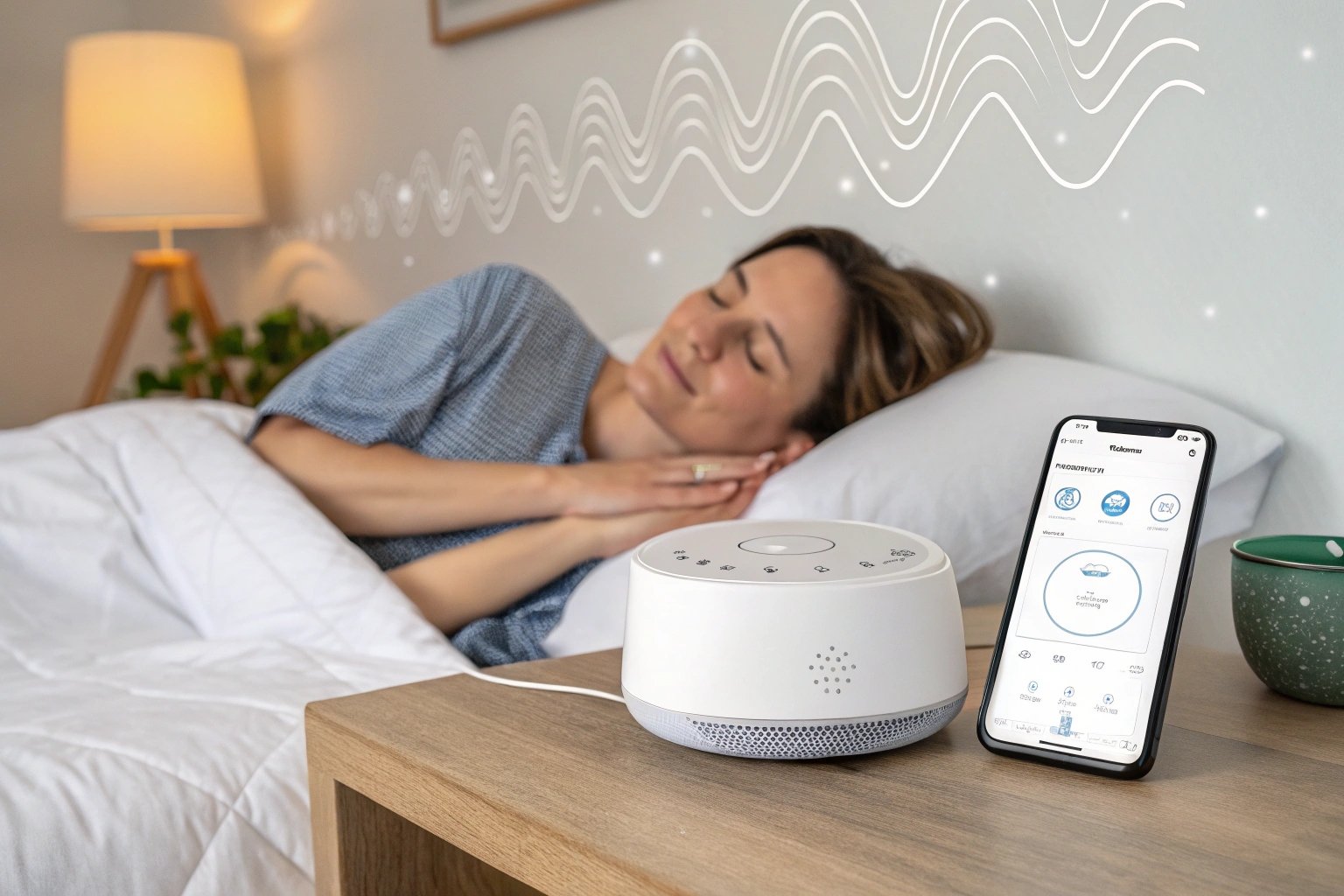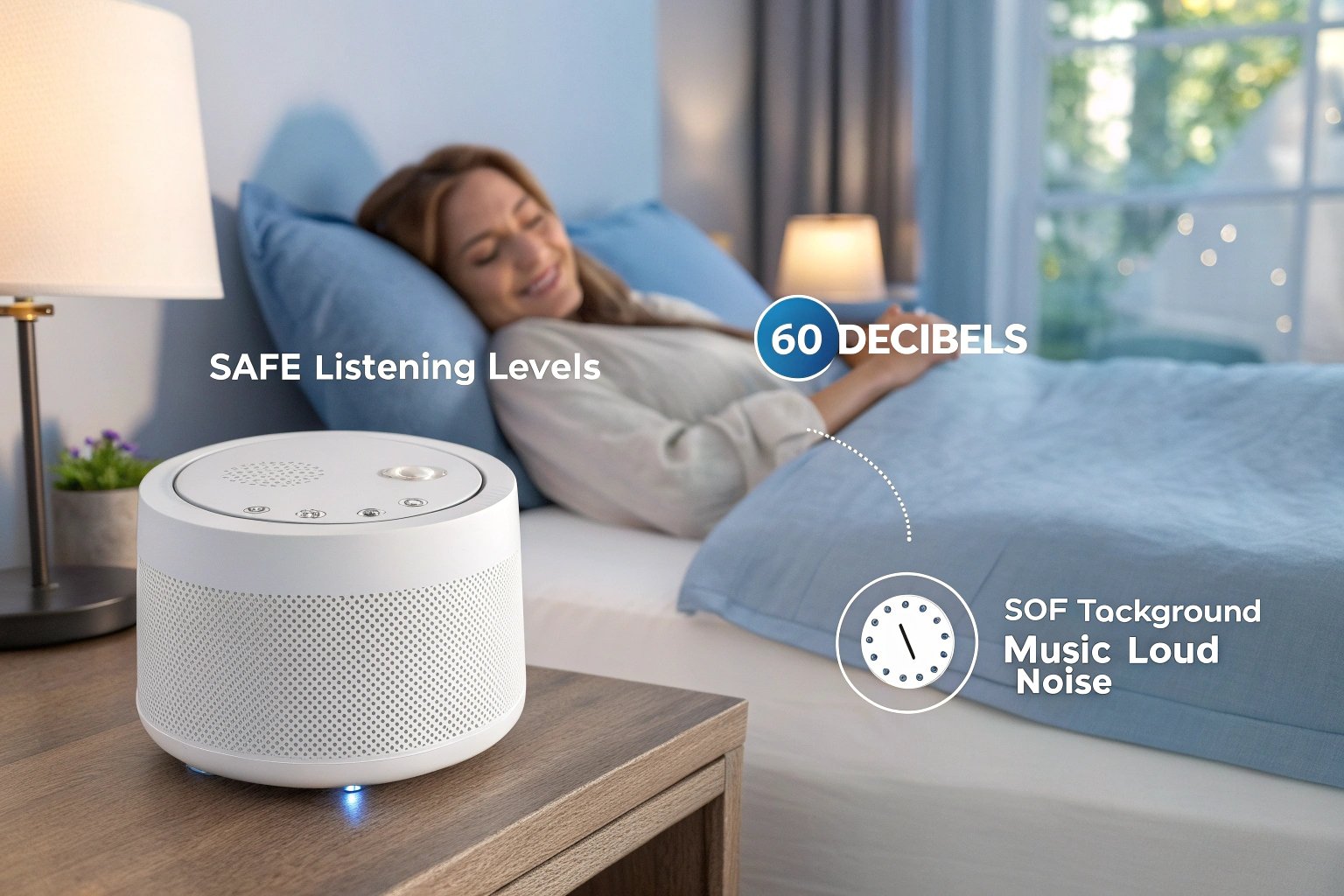For millions of people living with tinnitus, the constant ringing or buzzing in their ears can be frustrating, distracting, and sometimes debilitating. While there is no universal cure, many people find relief through sound therapy—particularly white noise. When used correctly, white noise can help reduce the perception of tinnitus and improve quality of life. But how does it actually work, and what should you know before using it for relief?

How Does White Noise Help with Tinnitus?
Tinnitus is often more noticeable in quiet environments, especially at night or during moments of rest. White noise works by masking the internal sounds of tinnitus with a consistent external sound. This helps the brain focus on the neutral background noise instead of the persistent ringing or hissing.

Over time, regular exposure to white noise can also promote a process called habituation, where the brain gradually learns to tune out the tinnitus as a non-threatening sound. For many users, this leads to reduced emotional response and less awareness of the tinnitus.
What Type of White Noise Works Best?
Not all noise is equally effective for tinnitus relief. While standard white noise spreads energy evenly across all frequencies, other sound colors might be more soothing for individuals with tinnitus:
- Pink noise: More balanced, with less high-frequency intensity. Feels softer and less harsh.
- Brown noise: Focuses on low-frequency sounds, often helpful for deep relaxation and more severe tinnitus.
- Nature sounds: Ocean waves, rainfall, and wind can provide relief by blending natural textures with masking effects.
Each person's experience with tinnitus is different, so it's worth experimenting with various sound types to see which brings the most relief.
Is White Noise Safe to Use Long-Term?
When used properly, white noise is safe—even for extended periods. The key is volume. Experts recommend keeping the sound below 60 decibels, about the level of soft background music. At this volume, the sound is effective but not damaging to hearing.

For nighttime use, choose a white noise machine with volume control and a timer function, or set it to play softly throughout the night. Avoid placing the device too close to your ears—keep it at least three feet away to ensure even sound diffusion.
Can White Noise Be Combined with Other Treatments?

- Cognitive Behavioral Therapy (CBT): Helps change the way you think about and emotionally react to tinnitus.
- Tinnitus Retraining Therapy (TRT): Uses sound therapy and counseling to support habituation.
- Hearing aids with sound generators: Beneficial for those with both hearing loss and tinnitus.
A multi-modal approach increases the chances of finding effective relief and managing tinnitus more comfortably over time.
| Treatment Method | Function | Can Combine with White Noise? |
|---|---|---|
| CBT | Emotional and psychological coping strategies | Yes |
| TRT | Retraining the brain’s response to tinnitus | Yes |
| Hearing Aids + Noise Gen. | Amplifies external sound and provides masking noise | Yes |
](https://placehold.co/600x400 "combined tinnitus therapies")
When Should You Consult a Professional?
While white noise can be helpful, it’s important to consult a hearing specialist or audiologist if:
- Your tinnitus is persistent or worsening
- You also experience hearing loss, dizziness, or ear pressure
- The sounds interfere with your daily life or mental health
A professional can perform hearing evaluations and recommend tailored sound therapy or medical interventions. They may also help you choose a device that matches your specific tinnitus profile.
Conclusion: Can White Noise Really Help with Tinnitus?
While it isn’t a cure, white noise is a powerful tool for managing tinnitus symptoms. It masks intrusive sounds, promotes relaxation, and supports the brain’s ability to ignore tinnitus over time. When used consistently and combined with professional guidance, it can significantly improve sleep, focus, and emotional well-being.
If tinnitus is affecting your life, white noise might be the gentle, practical relief you've been looking for.

